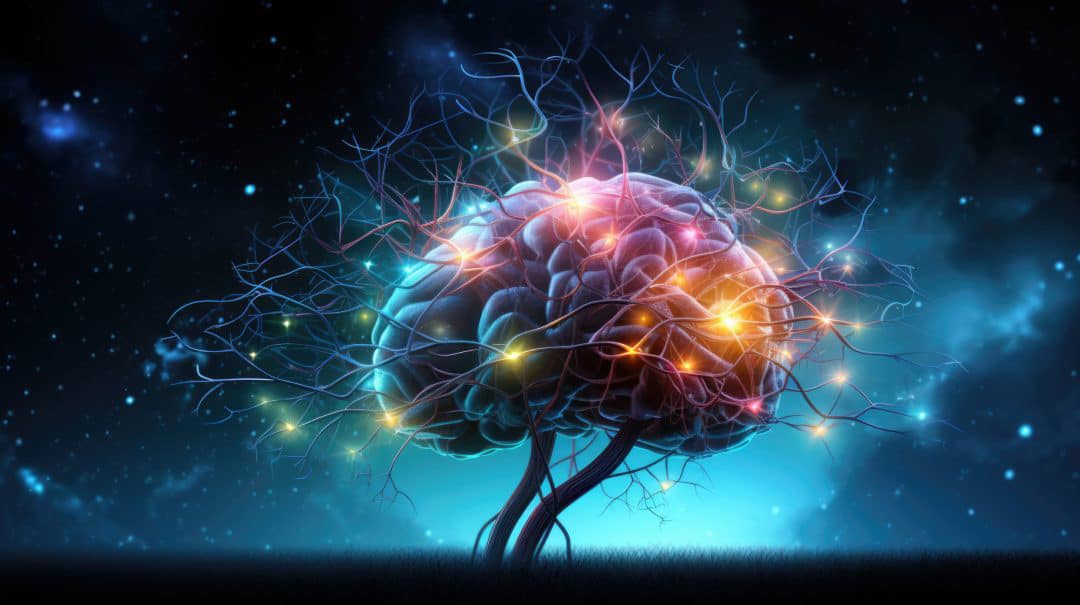Experience the Groundbreaking Benefits of Ketamine Treatments in Colorado Springs
- Home
- Ketamine
Ketamine treatments offer the possibility of promising results for both chronic and treatment-resistant conditions. This approach is backed by evidence and countless success stories.
At Valmente Wellness & Healing Center, we’re excited to offer ketamine-assisted psychotherapies to our patients who are battling severe symptoms. Our specialists have years of experience in treating patients with serious conditions, such as depression and PTSD.
OUR TREATMENT PLANS
Evidence-Based Psychotherapies
Enhance Neuroplasticity
Ketamine, when used correctly, has shown remarkable potential for enhancing neuroplasticity. Neuroplasticity refers to the brain’s ability to reorganize and adapt by forming new neural connections. In essence, it means that your brain can heal and change, even when faced with the most challenging conditions.

Increase Your Energy
Our ketamine treatments have proven to increase patients’ energy levels and help them feel more connected to themselves and others. For those suffering from conditions like depression and PTSD, this renewed sense of vitality and connection are life-changing.

Enrich Your Daily Life
At Valmente, we’re all about holistic treatments. Our ketamine-assisted psychotherapies have proven to improve our patients’ overall quality of life. As the ketamine promotes neuroplasticity, our specialists work closely with our patients, equipping them with healthier coping mechanisms and habits.

WHY CHOOSE US
A Path to Positive Change
At Valmente, we believe in the potential for healing and transformation. We believe that no one should have to settle for “symptom management”. That’s why we practice holistic, integrated care. Our specialists look at the whole picture — not just the symptoms. We work closely with our patients to develop a treatment plan that works best for them, which often means approaching treatment from multiple different angles.
Ketamine-assisted psychotherapy involves combining traditional psychotherapies with groundbreaking ketamine treatments. This multidisciplinary approach allows us to treat symptoms while also tackling the root cause.
FREQUENT QUESTIONS ABOUT KETAMINE ASSISTED THERAPY
FAQs Ketamine Assisted Psychotherapy (KAP)
Ketamine assisted therapy can be a life-changing treatment modality.
How does Ketamine work?
- Research about ketamine is still ongoing, but there is evidence that the ketamine works in multiple ways. Research suggests that ketamine can lead to regrowth of synapses, increasing glutamate, and release of brain-derived neurotrophic factor.
- The result is that ketamine often has several effects. First, it can have an immediate antidepressant effect. During the first week after ketamine treatment, research shows a boost in neuroplasticity and increased cognitive flexibility.
What are the benefits of KAP?
- Many people experience rapid relief in mental health symptoms as a result of ketamine treatment. Patients report improvement in mood within hours. Many patients often find an increased sense of meaning and purpose in their lives and increased motivation to engage in meaningful activity. Some patients report improvement in anxiety and that negative “thought loops” are disrupted.
- Research shows that ketamine can temporarily “opens windows” in the brain that provide opportunities for new learning (including learning about relationships and about yourself). It is important to note that these windows are only open temporarily, but combining ketamine treatment with psychotherapy can help people use these windows of opportunity to make truly meaningful, lasting changes in their lives.
- KAP is one of the few mental health treatment options that truly offers integrated care. This means that KAP allows us to provide holistic mental health care addressing biological, social, psychological, and spiritual components of mental health symptoms in a truly integrated way all within the same course of treatment.
What is the process for KAP treatment?
- Initially, patients meet with our board-certified psychiatrist for a thorough clinical evaluation to determine if KAP treatment is appropriate and to develop a treatment plan for what kinds of ketamine administration they will receive and dosage. Because our medical director is a board-certified psychiatrist, she is able to help patients optimize their other psychotropic medications to insure their ketamine treatment will be as effective as possible.
- From there, patients meet with our licensed, doctoral level, clinical psychologist for at least two preparation psychotherapy sessions. During these sessions, patients are able to explore all the factors contributing to their mental health symptoms, set intentions for their ketamine sessions, learn skills to help their ketamine sessions go well, and have a thorough understanding of what to expect during ketamine treatment sessions.
- After these preparation sessions, patients will be ready for ketamine administration sessions. Our clinic offers private rooms with a focus on tranquility and comfort. Each patient is given 3 hours for ketamine sessions to insure they feel adequately prepared prior to administration and that they feel they are able to “stay with” the experience of the medicine as long as they need. Some patients benefit from engaging in psychotherapy work as ketamine is wearing off and, because our clinic is only staffed with licensed mental health professionals, this is an option if needed. From there, patients make their way home (of note, patients are not able to drive themselves after ketamine sessions).
- We recommend patients have their first integration psychotherapy session the day after ketamine administration. Research has shown that engaging in integration after ketamine treatment helps maximize the benefits of ketamine and helps patients maintain treatment gains.
What conditions does Ketamine Assisted Psychotherapy treat?
Overall, research indicates that KAP is most appropriate to treat treatment-resistant depression and depression symptoms related to trauma and posttraumatic stress disorder (PTSD).
What is treatment-resistant depression?
Taking an antidepressant or going through psychotherapy, especially evidence-based psychotherapy, helps most people recover from depression; however, large population-based studies have demonstrated that a percentage of people with depression may not improve with these treatments alone. In these cases, many people have what is called treatment-resistant depression. Individuals with treatment-resistant depression have tried standard treatments and have not seen any improvement in their depression symptoms or have found that their depression symptoms continually return even with treatment. KAP is particularly helpful for individuals who, as part of their depression, tend to be sleeping too much, having difficulties with attention and concentration, have had appetite issues, and are having suicidal thoughts due to depression. KAP can be helpful even if individuals have treatment-resistant depression related to bipolar disorder.
What is depression related to trauma and PTSD?
Many people who have experienced trauma experience symptoms of depression related to this trauma. In fact, many symptoms of PTSD are like symptoms of depression (for example, having negative thoughts about yourself, other people or the world and avoiding activities that you would normally enjoy). Although research into the use of KAP for trauma and PTSD is still in the early stages, there is reason to believe from our current data that KAP can be very helpful for depression symptoms related to trauma and PTSD. In cases where people have experienced trauma or have PTSD, the psychotherapy part of KAP is very important. It is important to combine ketamine treatment with evidence-based therapies designed to help people process their trauma.
Are there any medical conditions that would exclude me from being treated by KAP?
Individuals with certain cardiovascular problems, poorly managed hypertension, individuals with sleep apnea or severe insomnia would not likely be good candidates for KAP.
Are there any psychiatric diagnoses or conditions that would not likely benefit from KAP?
Individuals with borderline personality disorder, individuals with severe psychosis, individuals with active substance abuse, and individuals with a primary anxiety disorder (such as panic disorder) are not good candidates for KAP.
Is it safe?
For many people, ketamine is considered a very safe treatment. It has been used for anesthesia since the 1960s and is often the anesthetic of choice for young children. There are some people who are not good candidates for this kind of therapy. One of the benefits of receiving ketamine treatment at our clinic is that you will be working with our board-certified psychiatrist who has significant expertise diagnosing and treating a wide range of mental health conditions and will do a thorough assessment to help insure that ketamine is safe for you. Working with a psychiatrist, also means having immediate access to necessary treatments in the event that a negative side effect from ketamine does occur. While ketamine is generally considered safe and often can be a very beneficial treatment for mental health symptoms, ketamine is not without side effects.
REQUEST AN APPOINTMENT
Claim Your Personalized Treatment Plan
Your mental health symptoms are complex demand custom solutions. At Valmente, we combine evidence-based psychotherapies with personalized care. We’ll develop a treatment plan that works best for your unique challenges and symptoms.
Don’t let mental health issues hold you back. Reach out to us today to request an appointment!